Profiles of Our Graduates
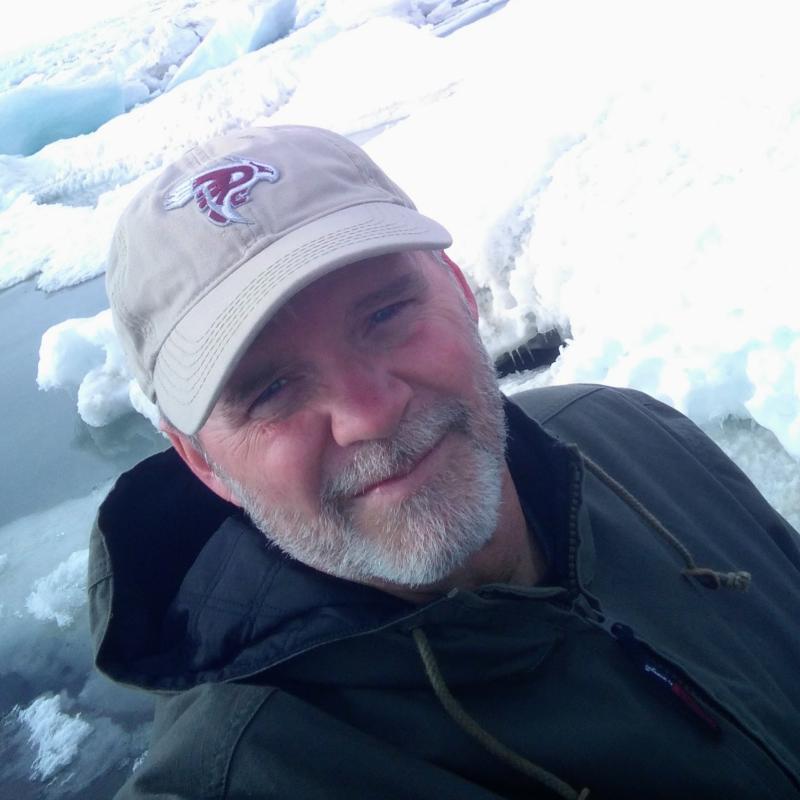
Ph.D. Indigenous Studies 2023
This dissertation explores the role and impacts of the Alaska Native Claims Settlement Act of 1971 (ANCSA) on Alaska Natives when federal disasters occur, along with the potential long-term consequences for government-to-government relationships between Alaska Tribes and the United States, specifically FEMA.
Major professors: Dr. Richard Hum and Dr. Cameron Carlson

Ph.D. Indigenous Studies 2022
Dr. Olga Paniik Skinner grew up in the communities of Kwethluk and Fairbanks. Her parents are Anita Aiyanguq Krohe, of the Michael family of Kwethluk, and Les Graves, a long time Fairbanksan originally from upstate New York. She is an enrolled member of the Organized Village of Kwethluk. She holds a bachelor's degree from the University of Alaska Fairbanks in Foreign Languages (Russian and French), a teaching certificate through UAF, a M.Ed. in Language and Literacy from UAF, and a Ph.D. in Indigenous Studies from UAF.Dr. Skinner is a faculty member of the University of Alaska Fairbanks School of Education, working for the Alaska Indigenous Teacher Corps, supporting more Alaska Native people going into teaching. Prior to working for the School of Education and during the time she was admitted to the Indigenous Studies program, she was an academic advisor at UAF's Rural Student Services and an advisor for the UAF chapter of the American Indian Science & Engineering Society (AISES). Her doctoral dissertation was titled, "The STEM Trail: Alaska Native Undergraduates Find the Right Path in Higher Education." It focused on the academic decisions and influences of Alaska Natives pursuing degrees in STEM, and the use of "the trail" as a metaphor to communicate persistence, decision making, and community within the Alaska Native STEM community at UAF.

Ph.D. Indigenous Studies 2022
Thesis: I’m a killer whale: The process of cultural identity development from the perspectives of young Indigenous childrenThe phenomenon of cultural identity development was investigated using video collected by children wearing forehead cameras as they engaged in activities on the Land. Children demonstrated their Indigenous identities by exhibiting intricate knowledge of the Land, subsistence practices, and core cultural values, with support
from peers, teachers, parents, and communities.
Major Professors: Dr. Theresa John and Dr. Carie Green

Ph.D. Indigenous Studies 2019
Dr. Heather Sauyaq Jean Gordon was born and raised in Homer, Alaska. She is Iñupiaq and an enrolled tribal member of the Nome Eskimo Community. Heather has a B.A. in Race and Ethnic Studies (University of Redlands, CA), a M.S. in Sociology (University of Wisconsin-Madison), and a Ph.D. from the Indigenous Studies program of the University of Alaska Fairbanks. For her dissertation, Self-determination, Sustainability, and Wellbeing in the Alaska Native Community of Ninilchik, Dr. Gordon conducted ethnographic futures research interviews to explore how individual, community, and tribal self-determining actions lead to community sustainability and wellbeing. She not only wrote a dissertation but produced a 20-year roadmap for the community outlining the results of the research for community development. Heather was awarded a Doctoral Dissertation Improvement Grant from the National Science Foundation Office of Polar programs and an Andrew W. Mellon fellowship to support her dissertation research. She presents her research at conferences in the U.S. and worldwide.
Heather lives in Madison, Wisconsin with her husband Benja. She is currently on the job market looking for jobs in Indigenous studies and community-based research. Dr. Gordon has over 9 years of experience in community-based research and looks forward to a career working with Indigenous people.
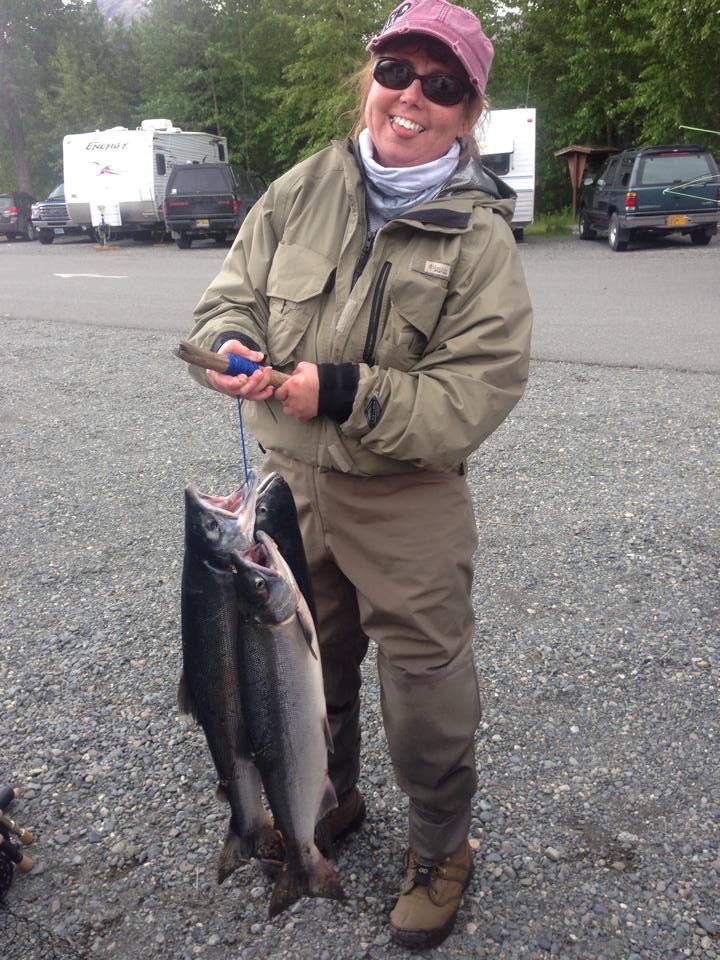
Ph.D. Indigenous Studies 2019
“Alaska Native corporations hold the Indigenous values of our people.” Sharon Guenther Lind, Ph.D.
In 1989 I was hired by the Aleut Corporation, one of twelve Alaska Native regional corporations, to run their shareholder department. They handed me a copy of the Alaska Native Claims Settlement Act and the 1991 Amendments. That was my classroom for ANCSA, that and the school of hard knocks. My mentor at the time, John Larsen, wanted me to explore my Aleut (Unangan) roots and really immerse myself in the Unangan way of being. I was 22, young and eager to work for my people. I didn’t really comprehend what John wanted, but I realize now, what he wanted, what my mother, Angelina (Snigaroff) Guenther wanted, and what I needed, was to understand and appreciate the Unangan way of being. Although I was born and raised in Alaska, I did not know my language or culture. My mother had primarily been raised in boarding schools starting at Wrangell Institute at the tender age of seven. She lost her language and much of her culture as was required by the instructors of that era.
While I focused on business throughout my career and education, with my bachelor's in Management, and my master's in Business Administration, the more I learned, the more I realized that our people are making our Alaska Native corporations more reflective of our Indigenous way of being. I have to honestly say, I was an odd fit to the Indigenous Studies program at the University of Alaska Fairbanks (UAF) as my background was business. What I gained from the program was a stronger commitment to my people and to our Indigenous way of being and can now incorporate that into the classroom in ways I never thought possible. In 2014, I was able to add the first accredited minor, UA systemwide, in Alaska Native Business Management at the University of Alaska Anchorage. Because of my work in the Indigenous Studies program at UAF, that minor includes course requirements for students to immerse themselves in understanding and appreciating Alaska’s First People, something my very first mentor wanted for me.
My journey continues as I leave UAA and move to Alaska Pacific University this Spring 2020. I look forward to the adventure and I appreciate all that I have gained from the wonderful University of Alaska Fairbanks Center for Cross-Cultural Studies program.
Dr. Sharon Guenther Lind is Unangan, born and raised in Alaska. She serves her people on the board of directors of the Aleut Corporation.
Sharon Guenther Lind, Ph.D. Indigenous Studies with a concentration in Indigenous Leadership Chairman of the Board of the Aleut Corporation
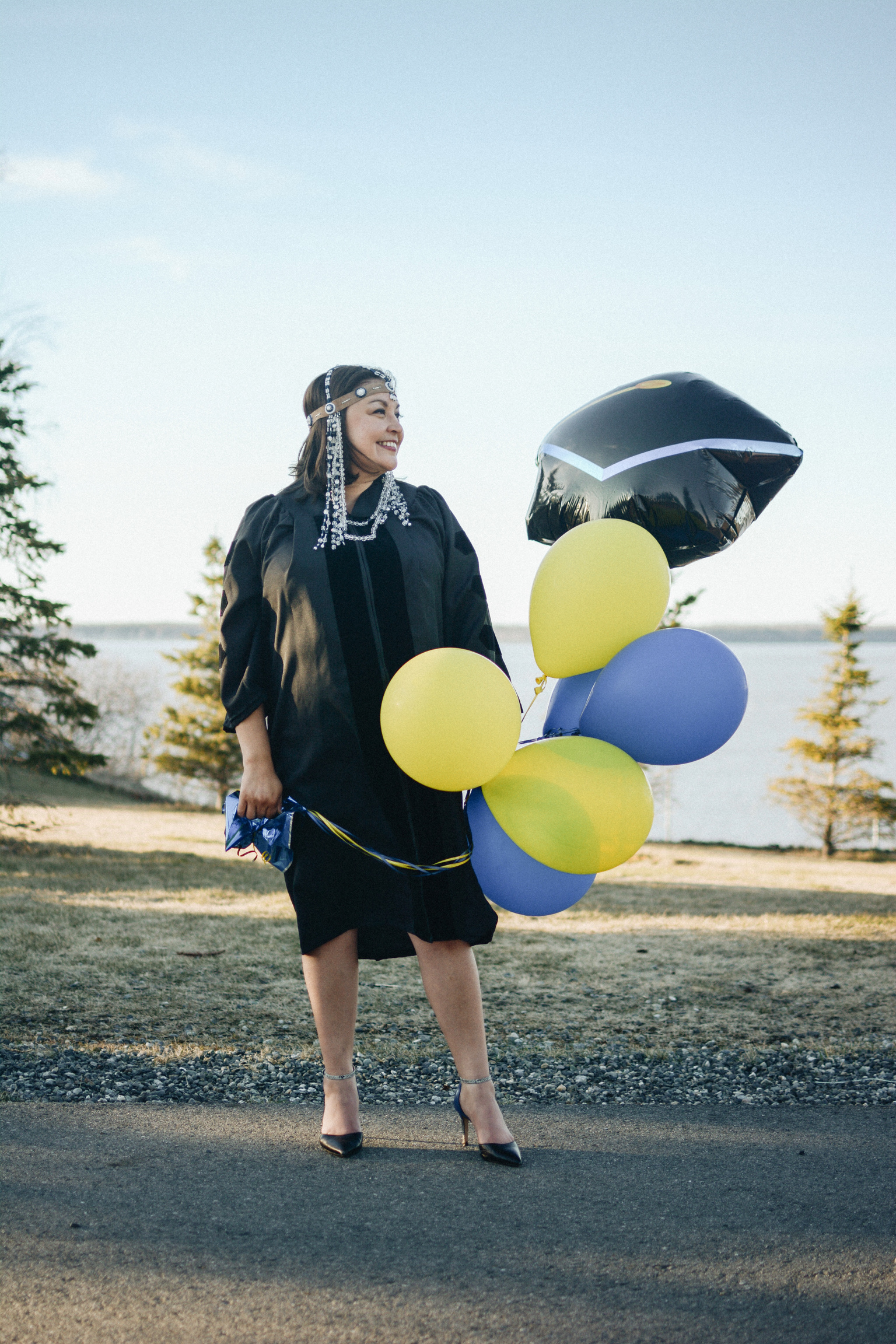
Ph.D. Indigenous Studies 2019
Congratulations Dr. Mack!
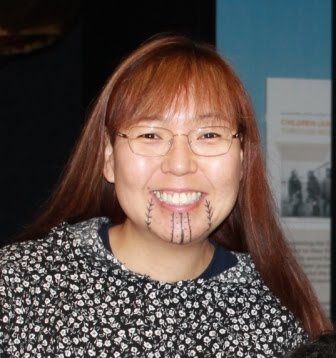
M.A. Cross-Cultural Studies 2018
Topkok has worked at the University of Alaska campus since 1994 in various administrative positions and is currently the Biomedical Learning and Student Training program (BLaST) Reporting and Outreach Coordinator. Recently, Topkok is teaching two courses at UAF; Alaska Native Studies Alaska Native Dance and Aesthetic Appreciation of Alaska Native Performance. Topkok’s research focused on identifying Native values and the importance of cultural identity within her family of skin-sewers, most of whom reached several generations.

Ph.D. Indigenous Studies 2018
Dr. Charlene Khaih Zhuu Stern is the Vice Chancellor for Rural, Community and Native Education at the University
of Alaska Fairbanks (UAF). Originally from Arctic Village, Alaska, Charlene is an
enrolled member of the Native Village of Venetie Tribal Government. She holds a bachelor’s
degree in American Cultural Studies from Western Washington University, a master’s
degree in Community and Regional Planning from the University of New Mexico, and a
Ph.D. in Indigenous Studies from UAF.
Charlene has 8+ years of experience providing technical planning assistance to tribal
and municipal governments in rural Alaska. She currently serves on the boards of Education
Northwest, the Arctic Research Consortium of the United States, and the International
Porcupine Caribou Herd Management Board.
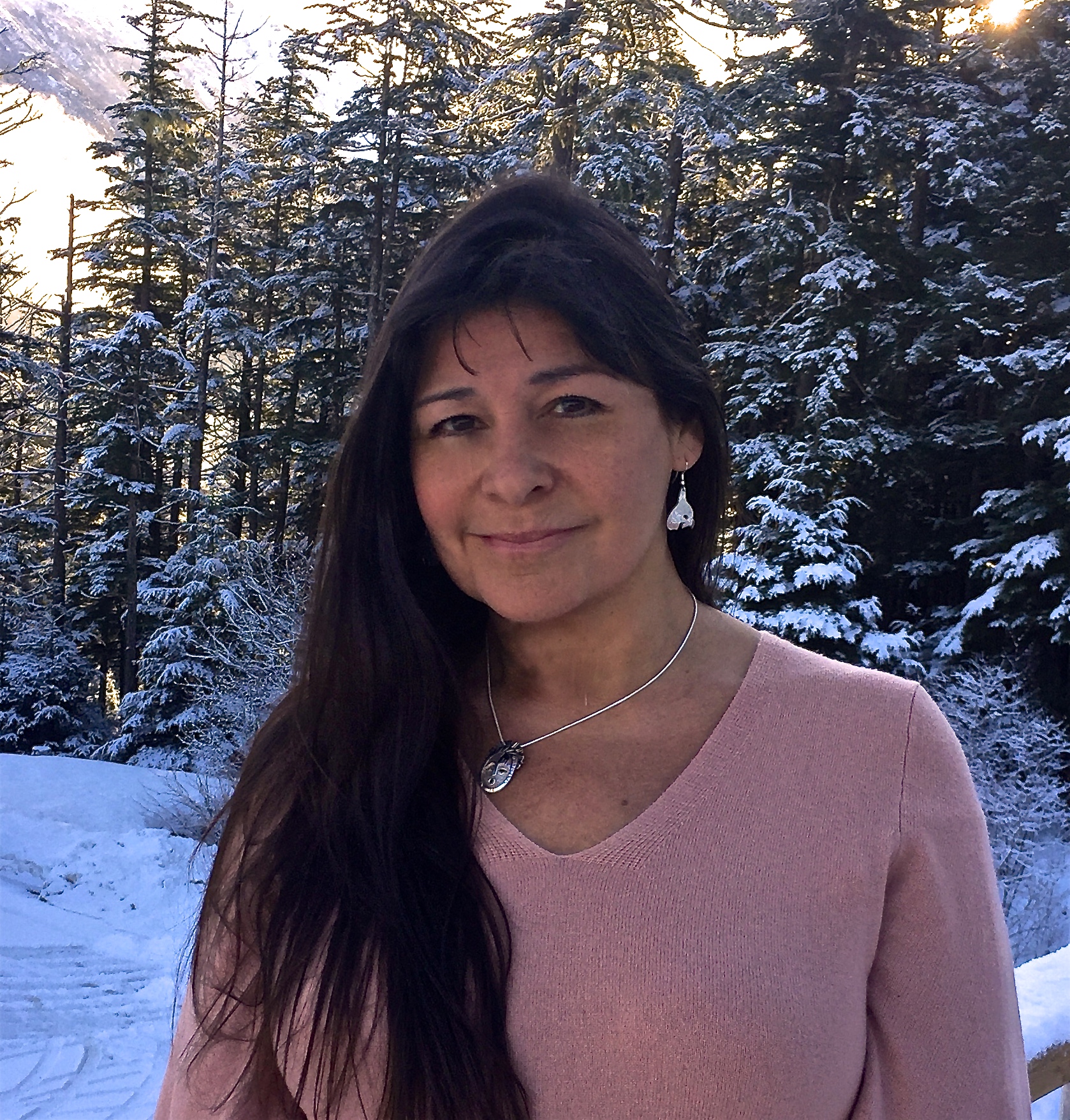
Ph.D. Indigenous Studies 2018
Dr. Alberta Jones is an Assistant Professor of Education at the University of Alaska Southeast (UAS) Juneau. She is a tenure track faculty and teaches in the teacher education program. Alberta grew up in Sitka, Alaska, with her mother, Corrine Sundberg Brown from Larsen Bay on Kodiak Island, and her father, Albert Nelson, is from Ketchikan and Metlakatla. She is of Tsimshian, Alutiiq, Russian, Hispanic, Norwegian, Swedish, and German descent.
During her public school teaching years, she taught in the Juneau School District at the middle school level and upper elementary levels. She worked on two master’s degrees, while also having a family when teaching. She coached many sports during her ten years at middle school. Middle school coaching and teaching were a very rewarding part of her teaching experience. Alberta then moved into administrative work and served as a grant director, coordinating multiple large federal Native education grant programs. A highlight was coordinating many secondary level summer science camps, including a role as a cultural coordinator with Alaska Native Student Wisdom Enrichment Retreat (ANSWER) Camp, which typically involved 80 Alaska Native students from 40 rural communities. The academically rigorous, STEM camps embedded place-based education with the integration of several standards-based content areas and a culturally responsive curriculum in the two-week intensive camp programs.
Following her 20-year retirement, she moved to metro D.C. with her federal employee husband, Peter, and son Bruce. Alberta then taught in Maryland’s Montgomery County Public schools. She greatly valued the opportunity and benefited from it by gaining knowledge of rigorous assessment models. Following her husband’s two-year job detail in Washington D.C., they drove back to Alaska and within six hours of arrival, she began teaching at UAS and entered the University of Alaska Fairbanks Indigenous Studies Ph.D. program a month later.
While teaching at UAS, Alberta completed her Ph.D. degree in Indigenous Studies with an emphasis on research. She is also a member of the Golden Key International Honor Society (top 10%) as well as a recipient of the Mellon Dissertation Fellowship Scholarship.
Her thesis was entitled, “Alaska Native Scholars: A Mixed-Methods Investigation of Factors Influencing their Ph.D. Attainment." The study is a one-of-a-kind study for Alaska and will have great benefits for Indigenous graduate students and for universities and agencies seeking to recruit, retain, and graduate Alaska Native Ph.D. students. Alberta investigated first-hand information and experiences from nearly all living Alaska Native Ph.D.s, located around the country and overseas in the fall of 2014. Her study resulted in finding common and unique demographics and factors of the participants. She discovered what motivated them prior to and during their doctoral journey, as well as their various types of support networks that contributed to their Ph.D. degree attainment. Ninety-two percent of living Alaska Native Ph.D.s replied to her lengthy survey, which was followed up with ten personal interviews from eight different ethnicities, including degree fields, year of completion, birthplace, and degree location.
Alberta understands the importance of the necessary elements to support Alaska Native graduate (and even undergraduate) students. She enjoys networking with her peers and having fruitful discussions on Native student success in postsecondary education, particularly with the interest of increasing the number of future teachers.
Now that she finished her Ph.D. journey, she would like to work on the publication of the important research she has done. Alberta looks forward to getting back to some travel, family time, and other interests.

Ph.D. Indigenous Studies 2018

Ph.D. Indigenous Studies 2017
Dr. Yvette Running Horse Collin received her doctorate in Indigenous Studies from UAF in May 2017. She is of Lakota, Nakota, Cheyenne, Arapaho, and Mayan descent on her mother's side, and Cherokee, Choctaw and Scottish descent on her father's side. Dr. Collin acknowledges the Native Elders, equine preservationists, and the ancient-line horses she caretakes as having helped to provide the “Indigenous education” she received during her decade of pre-research. She credits her Doctorate Committee, professors, and UAF staff for providing the culturally respectful educational environment and curriculum that she needed to successfully conduct the Western academic portion of her research.
Her experience merging these two distinctly different educational approaches solidified her belief that combining Indigenous traditional knowledge systems with the best of Western academic scholarship is the key to creating a holistic and sustainable educational model. This approach will result in more accurate scholarship that is free of Eurocentric bias, and it offers a path to true compassion and wisdom. Such a system has the power to ensure a healthy future for the next seven generations.
This bifurcated approach led to the creation of her dissertation titled: The Relationship Between the Indigenous Peoples of the Americas and the Horse: Deconstructing a Eurocentric Myth. In this work, Dr. Collin deconstructed Western academia’s version of the history of the horse in the Americas and reconstructed it to include: cross-cultural translation, the traditional knowledge of many Indigenous Peoples, Western scientific evidence that did not support the dominant cultural claim, and historical records. This dissertation proves that data from the latest Western technology combined with information from our Indigenous Peoples has the power to reconstruct more accurate and unbiased histories.
Today, Dr. Collin and her family manage Sacred Way Sanctuary (SWS), a research and educational facility located in Florence, Alabama that focuses on the following: preserving the Ancient Horse of the Americas; sponsoring cutting-edge Western scientific research; providing top-quality education on local Native heritage; offering a foundation for youth/elder traditional knowledge exchange; and creating an Indigenous learning experience for those who visit. Sacred Way Sanctuary is an official interpretive center for the Muscle Shoals National Heritage Area and the National Park Service. Dr. Collin is also a founding member of the Native American Horse Trail, which links like-minded horse preserves across the United States to present a more accurate history of the horse in the Americas, as well as introduce the public to America's ancient horses.
Dr. Collin is currently the Executive Director of Sacred Healing Circle, a non-profit organization that focuses on healing Native individuals and communities. In this capacity, she works closely with Native Elders and Youth for the preservation and protection of traditional knowledge systems, sacred sites, and ceremonial and spiritual ways of knowing. She also proudly serves as part of the Administrative Team for the Black Hills Sioux Nation Council of Elders, which is centered on Pine Ridge Reservation in South Dakota. All of her present work is focused on correcting inaccurate portrayals of Native Peoples, freeing sacred sites from the prisons in which they are currently held (due to improper “management” by the dominant Western culture), and helping Indigenous Elders to safely transmit their traditional knowledge to youth who are prepared to receive it.
Dr. Running Horse Collin is an award-winning journalist and has held various executive positions at non-profit institutions around the United States. She has advised state, federal, and Fortune 100 organizations on Native American policy. She lectures extensively throughout the United States and internationally on her people’s traditions and the history surrounding the horse. Dr. Running Horse Collin has presented at conferences such as: The World Indigenous Peoples Conference on Education (WIPCE), the Canadian Indigenous/Native Studies Association (CINSA), the Alaska Native Studies Conference, and Standing Rock Sioux Nation’s Prophecy of the Grandfather’s Conference, as well as for American Indian-themed forums hosted by private organizations, educational institutions, and state and federal governments. She practices the traditional ways of her Ancestors and is a wife, mother, and grandmother.
(Elder and Youth work) “Earth Mother Protection Movement” Video
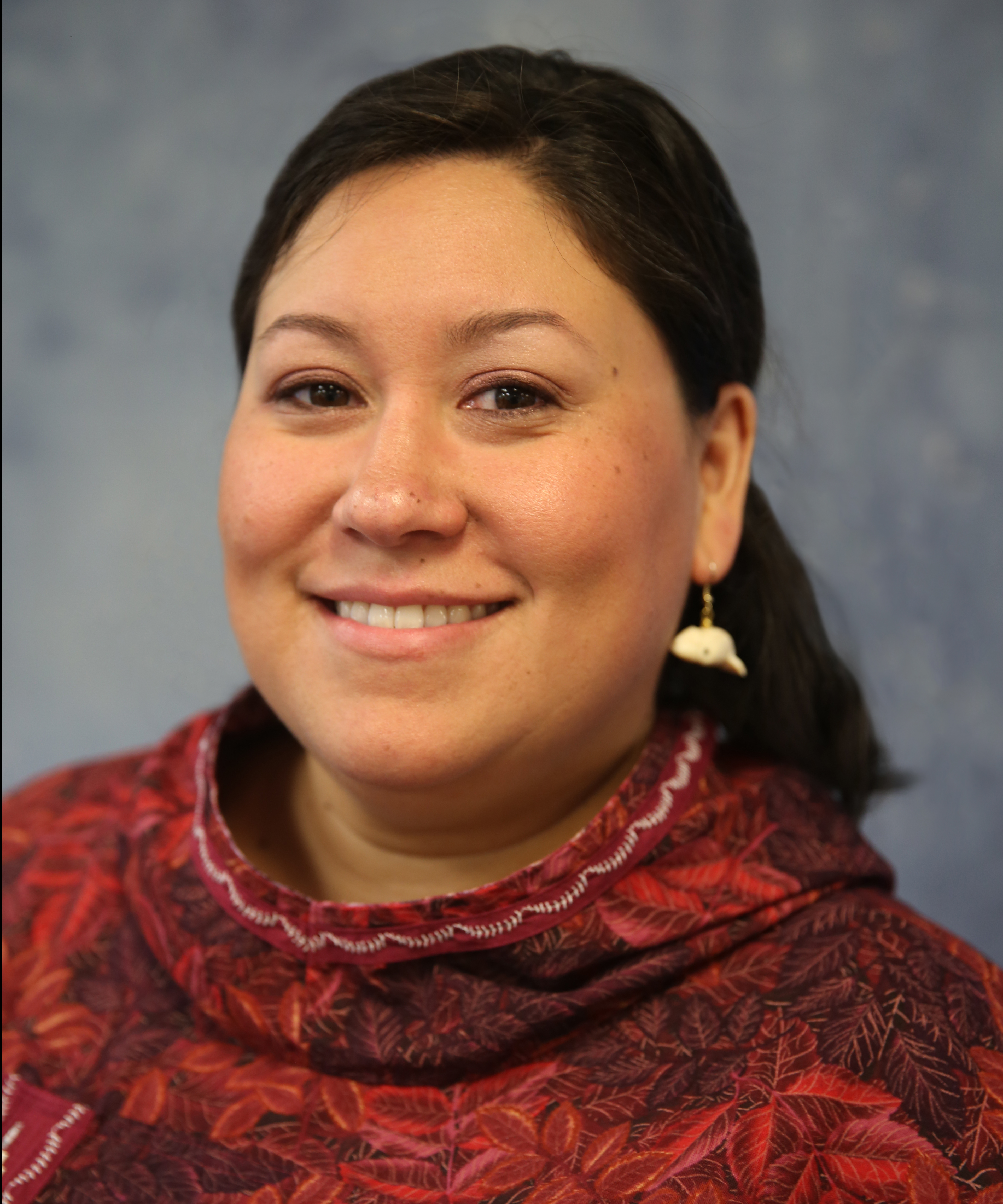
Ph.D. Indigenous Studies 2016
B.A. Anthropology and B.A. Alaska Native Studies from University of Alaska Fairbanks, 2004. Masters in Alaska Native and Rural Development from University of Alaska Fairbanks, 2010. Ph.D. in Indigenous Studies, with an emphasis in Indigenous Leadership from the University of Alaska Fairbanks, of May 2016.
Dr. Brower is currently the President of Iḷisaġvik College, Alaska’s only tribal college. She has been with the college since 2007 working in external relations, institutional advancement, student services, and marketing. She has served as President since 2012. Prior to working for the college, Dr. Brower managed an education and culture grant for the North Slope Borough for three years and worked as the Museum Curator of the I Iñupiat Heritage Center.
Dr. Brower grew up in both Barrow, Alaska, and Northern California, practicing a subsistence lifestyle in both areas. She has a daughter, Isla, and along with her husband, Jesse Darling, lives in Barrow, Alaska where she loves to be close to her culture and community. Brower was named one of Alaska’s Top 40 Under 40 in 2015.
Brower is active in her community in Barrow, on the North Slope and statewide. She is Board Member of the Friends of Tuzzy Library and is a co-founder of Leadership: Barrow. She serves on the Wells Fargo Community Advisory Board, serves as the Vocational/Tribal representative on the Alaska Postsecondary Access and Completion Network, serves on the Alaska Airlines Community Advisory Board, on the Foraker Group’s Operations Board, and as a Commissioner for the State of Alaska Commission on Postsecondary Education.
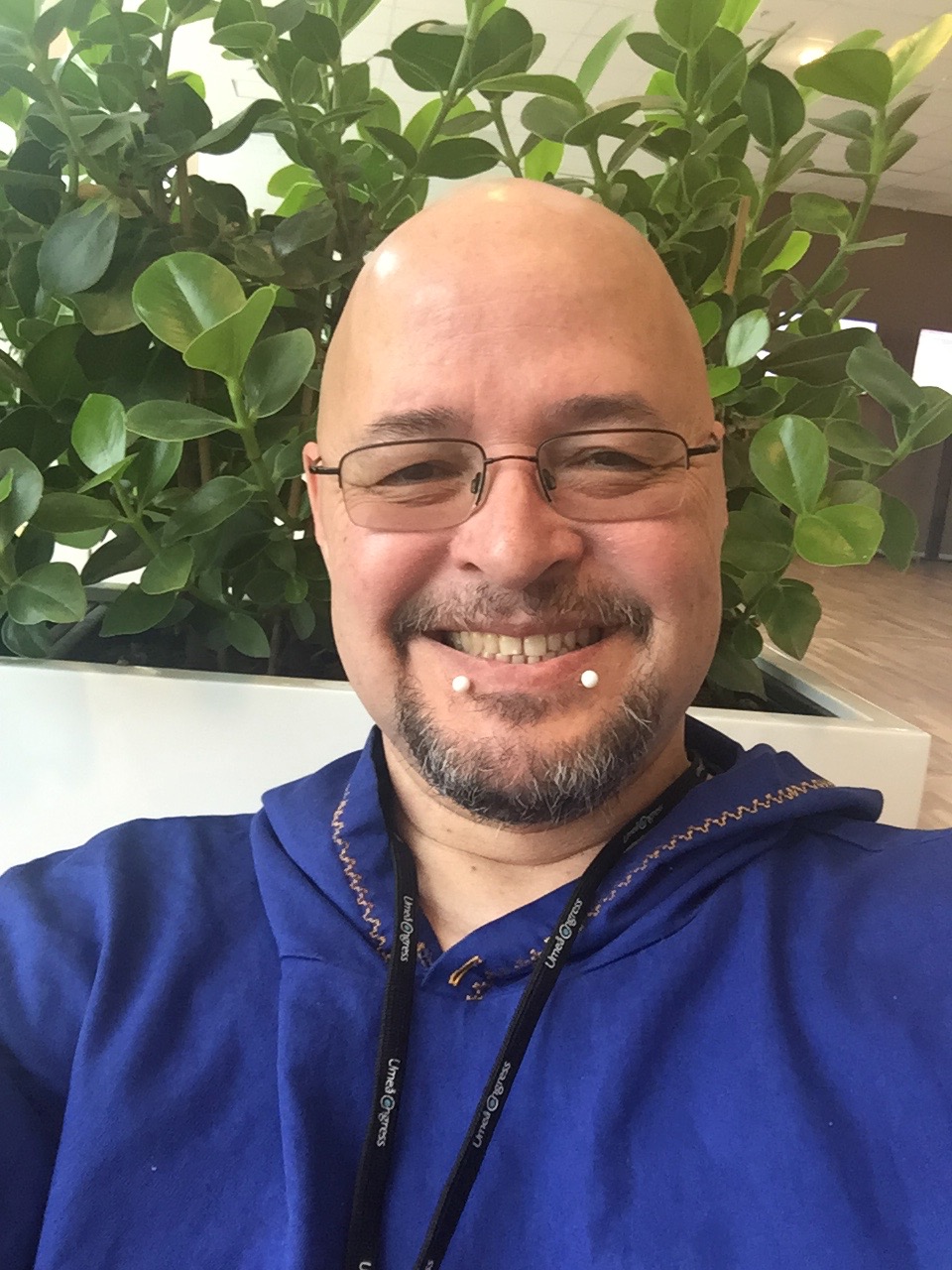
Ph.D. Indigenous Studies 2015
Dr. Sean Asikłuk Topkok is an Associate Professor in the Center for Cross-Cultural Studies at the
University of Alaska Fairbanks. His family comes from the Seward Peninsula in Igloo
and Teller, Alaska, and is Iñupiaq, Sámi, Kven, Irish, and Norwegian. He began his
career in Alaska Native education in 1987, working in Anchorage and Fairbanks. Dr.
Topkok is the leader of the Pavva Iñupiaq Dancers of Fairbanks founded in 1999, a
local community dance group inviting Native and non-Native people interested Iñupiaq
dance, cultural heritage, and cultural values. He received his B.A. in Humanities,
M.A. in Cross-Cultural Studies, and Ph.D. in Indigenous Studies – all from the University
of Alaska Fairbanks. His dissertation was entitled: Iñupiat Ilitqusiat: Inner Views of Our Iñupiaq Values.
He has authored numerous peer-reviewed academic articles and chapters focusing on
Indigenous values, methodologies, and well-being. Dr. Topkok presents worldwide about
his academic research and has given a Tedx Talk about Iñupiaq Stories: Past, Present, and Future. He has been a keynote and plenary speaker at several conferences. Dr. Topkok is
active in various Indigenous organizations and research at the local, national, and
international level.
He is one of the co-chairs for the Alaska Native Studies Council and serves on the
University of Alaska Teacher Education Council. He serves as a Co-Chair for the World
Indigenous Nations Higher Education Consortium and collaborates with various international
universities for UArctic Thematic Networks.
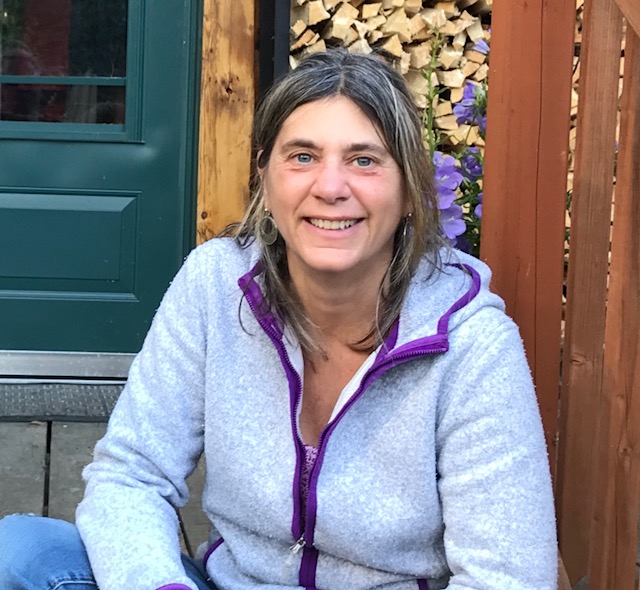
Ph.D. Indigenous Studies 2014
Her interest in traditional ways of healing began in Nepal where she lived as a Peace Corps volunteer after completing her B.A. in psychology from Allegheny College in Pennsylvania. Her master's work took her back to Nepal and the spirit of a land and peoples that have had a profound effect on her worldview. For her research, she was fortunate to explore Indigenous Psychologies of Nepal and the Use of Traditional Healing Systems. Afterward, she worked in both the educational and mental health systems but felt restricted by the institutionalized approaches to learning and wellness.
She returned to UAF and pursued her doctoral work on "Deconstructing the Western Worldview: Toward the Repatriation and Indigenization of Wellness." Through this work, she found her way back to her own ancestral roots and found that ancient traditions of Europe, particularly those of the Mediterranean region, shared more in common with Indigenous cultures of the Western hemisphere than they do with the modern-day Western worldview. Her research tracked the West’s loss of their ancient spirituality to the European settlers’ arrival on the shores of this continent. It proposes that this original trauma is at the root of the West’s perpetration of the atrocities against Indigenous peoples for over 500 years.
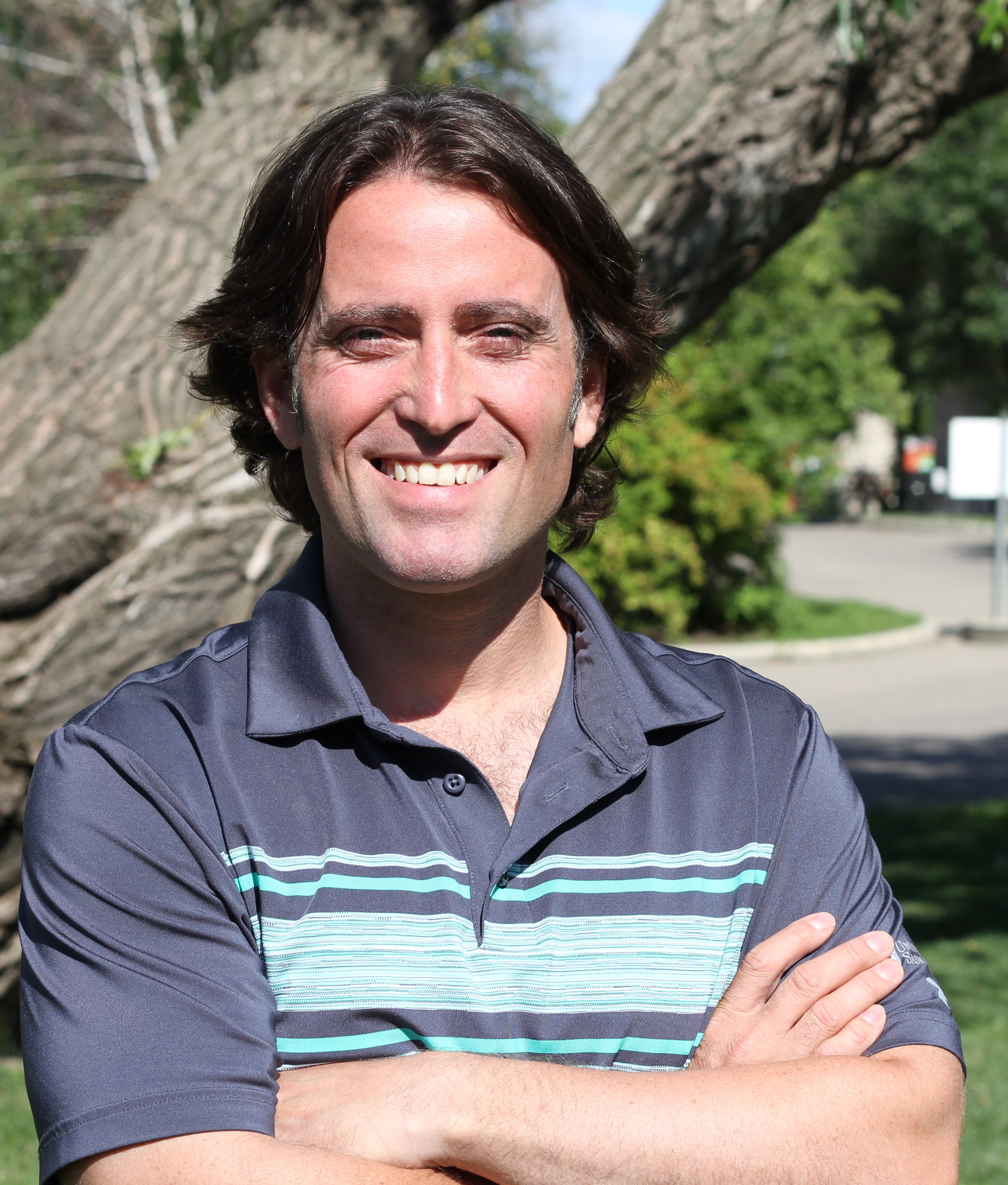
Ph.D. Indigenous Studies 2010
Dr. Phil Loring is currently an Associate Professor and Arrell Chair in Food, Policy, and Society, at the Arrell Food Institute and Department of Geography, University of Guelph. Over the years, his research has explored the various challenges facing coastal communities—what unites them, what divides them, and what makes them sustainable, or not. He and his students have published nearly 40 peer-reviewed papers, and have ongoing research in communities across Alaska and Western and Arctic Canada, as well as in Ecuador and Saskatchewan. His recent publications focus on the interplay of conflict, diversity, governance, and environmental change in Alaska fisheries. The short film series, Tied to the Land, which Phil produced with Dr. Craig Gerlach and Alaska filmmaker Sarah Betcher, can be viewed here as a window into this work.
Phil is active in the research community: he is President of the Arctic Division of the American Association for the Advancement of Science, aa co-lead for the “human activity” theme for MEOPAR, the Marine Environmental Observation Prediction and Response network; he is also a member of governance team of the Rural Policy Learning Commons, an international partnership network based in Canada; he is co-lead of the “Fish as Food” cluster for the Too Big to Ignore Network, and is a founding member of the North American Food Systems Network.
At home, Phil has a wife, Alysa, who is an anthropologist and professional editor, and a 4 year old daughter, Cordelia.
You can learn more about Phil’s work at his website: http://www.conservationofchange.org, and can follow him on Twitter @ConserveChange.

Ph.D. Indigenous Studies 2010
Dr. Theresa Arevgaq John is an Associate Professor in the Department of Cross-Cultural Studies at the University of Alaska Fairbanks. She was raised in a large family in the traditional Yup’ik lifestyle in the village of Toksook Bay in Southwest Alaska. This early life grounded her in Indigenous cultural principles and values and knowledge systems, which has shaped both her personal and academic life. As an advocate for Native education, she is highly involved in various organizations and projects that promote traditional Native culture, history, rituals and ceremonials, spirituality, language and education.
Dr. John received her B.S., M.Ed., and Ph.D. from the University of Alaska Fairbanks.
Her thesis was titled: "Yuraryararput Kangiit-llu: Our Ways of Dance and Their Meanings."
She has authored numerous academic articles and a co-author of the book "Yupiit Yuraryarait:
Yup’ik Ways of Dancing" and has presented her work at dozens of local, national, and
international professional conferences.
Dr. John currently serves on the National Advisory Council on Indian Education and
the International Indigenous Women’s Forum. She is a former member of the Alaskan
State Council Arts and the former Chair of the Traditional Native Arts Panel. She
is also the recipient of the Governor's Distinguished Humanities Educator Award and
Alaska State Library Award.
In 2011, President Obama appointed her to serve on the National Advisory Council on Indian Education (NACIE). The National Advisory Council on Indian Education (NACIE) is authorized by section 7141 of the Elementary and Secondary Education Act of 1965 (ESEA), 20 U.S.C. 7471; and governed by the provisions of the Federal Advisory Committee Act (FACA), 5 U.S.C. App. II.
The fifteen NACIE members are appointed by the President and serve with the following purpose and functions: To advise the Secretary of Education (Secretary) concerning the funding and administration (including the development of regulations and administrative policies and practices) of any program, including any program established under Title VII, part A of the ESEA, with respect to which the Secretary has jurisdiction and that includes Indian children or adults as participants or that may benefit Indian children or adults.
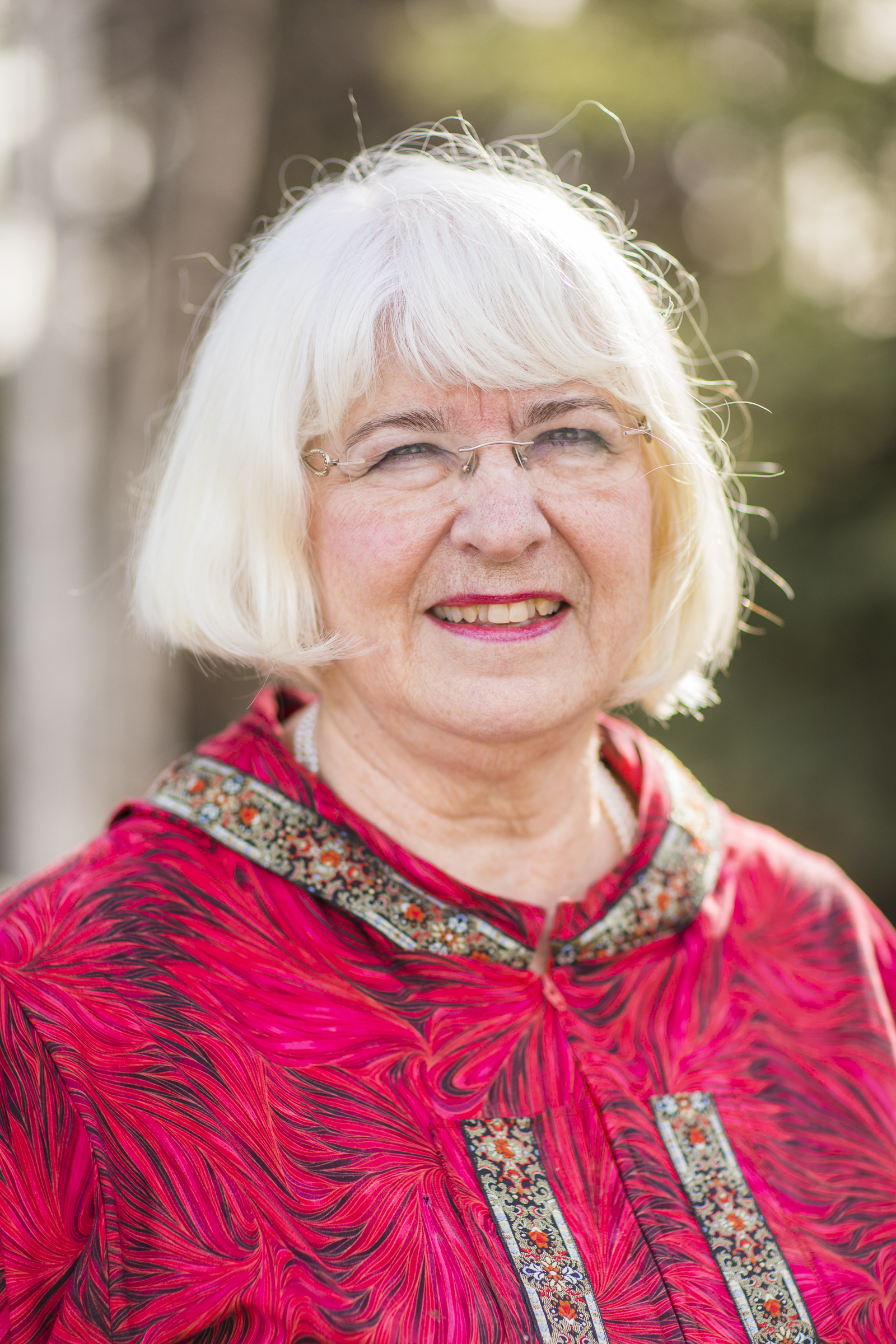
M.A. Cross-Cultural Studies 2007
The oldest of nine children, I grew up in the Upper Peninsula of Michigan in a small town called DeTour Village. The day after I married Mark Wartes, we moved to the edge of the Arctic Ocean where we lived for the next several years on a homestead in the Colville River Delta. Mark had grown up in Barrow and along the Arctic coast, the son of a missionary pastor pilot and wife. He considers the Arctic to be home. I joined him there and together we’ve had many adventures since. While living in the Arctic, our two children were born.
We were very fortunate to live on Alaska’s North Slope prior to the development of the oil fields. The lifestyle we experienced really doesn’t, and can’t, exist anymore. We lived on a remote homestead, 40 miles west of Prudhoe Bay, 20 miles north of Nuiqsut, or 180 miles east of Barrow.
Our groceries arrived on a C-46 airplane once a year in the fall. Imagine the grocery list I had! What a learning experience. Mark shared with me the grocery list he had developed over the years. I learned to do my own food ordering, expanding it considerably as a bachelor’s idea of meal planning left room for improvement. If we started to run out of something, we slowed down on that particular item or switched to a similar one that could be substituted, or just went without. Then next year we looked at what we’d run out of and decide what changes needed to be made. We mailed our food and supply list to a grocery store in Fairbanks that supplied people in bush areas. They, in turn, took our list, knowing that if they didn’t have a particular item – that they should substitute something close to it, as there wasn’t any way to contact us and ask what we’d prefer. Several grocery carts and many, many cases of food and hundreds of pounds of flour and sugar later, they boxed up all of our food, put it on pallets and transported it to the Fairbanks charter airline company that flew our food north to us.
Since this was before cell phones, you may wonder how we found out when our food and supplies were to be shipped to us, so that we would have the runway all ready, smoothed out, and packed down, with lighted flare pots along its length? In Alaska, commercial radio stations send out twice daily messages to people living in the bush, messages from families stating that they’d arrived safely in town, that grandma Susie says hello, that new baby Jonathan was born, that the tundra tires we’d ordered would be shipped by mail next week. We eagerly sat by our radio awaiting word of the long-anticipated flight, sometimes to be disappointed when the weather was poor and they had to turn back because of fog or wind over the Brooks Range. Then came the day that we heard the drone of the C-46 in the distance. Everyone grabbed their parka and mukluks, jumped on their snow machines, and quickly drove to the runway so that the flare pots could be lit alerting the pilot of the runway.
Imagine, several trips with the snow machine sledding supplies up the house, where
we would unload the sled, separate out the perishable supplies and bring them into
the house, along with checking the unmarked boxes that may contain catsup or mayonnaise
or other items that couldn’t be frozen.
Then there was the mail, such a welcome event. Over the next several weeks we would
open more mail each day, read magazines or newspapers with what might seem to be “stale”
news, but to us was news that had happened the day before. In addition, the Alaska
public library has a system where they send out 10 books each month to us, keeping
track of the books they’d sent, so there would be no duplication. When we finished
reading the books, we would close up the mailbag and send it back to them on the next
mail flight, usually every four months.
In the spring we traveled out onto the ice pack; in summers we traveled the Colville delta hunting and fishing. We stacked and gathered driftwood for winter, which we would later retrieve with a snow machine, as we heated our home with driftwood. The Arctic slope has no trees. We gathered the driftwood that collected along the shores in the Harrison Bay area, wood that had drifted down the Mackenzie River in Canada and floated over into Harrison Bay.
Come fall we would travel inland hunting ducks and geese, moose, caribou, and Dall sheep, preparing ourselves for the winter. From late September to mid-November we fished for Kaktak (Arctic Cisco) with nets under the river ice, fishing for our personal and commercial use. The sale of these fish helped offset the cost of the C-46 flight that was chartered each fall, bringing in our year’s supply of food, and things such as building materials, propane, and mail. Electricity was a luxury we used on an occasional basis from a small generator. Water came from a lake, snow, or ice (depending on the season).
Imagine my washday! Mark would spend the day before washday chopping a hole in the lake ice, a task of several hours, dipping five-gallon cans into the water, and transporting these cans of water to the house by snow machine and sled, where I would transfer the water to large clean garbage cans to bring the icy water up to room temperature. The next day we would put as much water as we could into large cooking pots or containers and heat them on our barrel stove and wood-burning kitchen range. Then we added this hot water to the cold water placed in our washer, so as to have a warm water wash. Next came the drying of all these wet clothes, wet laundry hung everywhere, especially with two babies in diapers. In between major washdays, I washed clothes by hand in a big washtub.
The rapid expansion of oil development quickly changed our subsistence lifestyle. We moved to Fairbanks and enrolled our children in school. While raising our family and working, I continued to take the occasional course, eventually attaining my certified professional secretarial rating. This certification transferred into university credits on my transcript, and I continued, frequently one course a semester, occasionally three courses, to attain a college degree. In 1996, I earned an associate’s degree, and in 2001 I earned an interdisciplinary bachelor’s degree in Alaska Native Studies and Business at UAF, eventually obtaining a master's in Cross-Cultural Studies.
I have a life-long interest in working with Indigenous peoples, personally and professionally. I worked at UAF with the Rural Alaska Honors Institute (RAHI), a college preparatory bridge program for rural and Alaska Native high school students. In the past I have worked with UAF Alaska Native studies, Festival of Native Arts, and the Elder-in-Residence class. In addition, I have taught Federal Indian Law at UAF. I have also served as a teaching assistant for a number of classes, including Alaska Native Education, Comparative Aboriginal Rights & Policy, Native Self-Government, and Alaska Native Elder-In-Residence.
I have been fortunate enough to travel occasionally to Native villages, many Alaska Federation of Natives conventions, Bilingual Multi-Cultural Conferences, participate in, assist with, and attend the Festival of Native Arts for the last 35+ years. I have assisted with the World Eskimo Indian Olympics, along with numerous other events such as potlucks at UAF and throughout the community, such as the Presbyterian Church Eskimo Thanksgiving feasts, Christmas feasts, Christmas Nativity Program, and many funeral potlatches.
Life has been a wonderful adventure! And, my M.A. in Cross-Cultural Studies helped me along the way.


